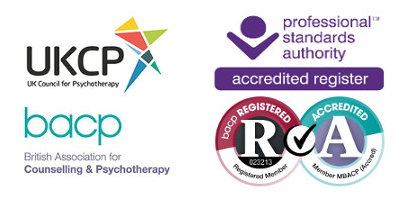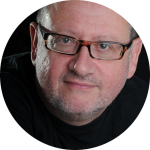David Mair published this cover feature article in September 2005 in ‘Therapy Today’, the journal of the British Association for Counselling and Psychotherapy.
How damaging is it to be sent away to school at a young age? This article critically inspects the psychological implications of a form of education intended to produce ‘the best years of one’s life’.
The phenomenon of child abuse attracts extensive coverage in the media. Whether the abuse is sexual, physical or emotional, all serious attempts to prevent the harming of the most vulnerable members of our society are to be applauded. Why is it, then, that a practice that ‘offends no fewer than 11 articles of the UN Convention on the Rights of the Child, which Britain signed in 1991,’ continues with barely a ‘murmur of concern’?1
 Britain’s most overt form of child abuse is mysteriously ignored.
Britain’s most overt form of child abuse is mysteriously ignored. 
The practice in question is the peculiarly British tradition of sending young children away to boarding schools at ages when they are still in the process of establishing their sense of connection and attachment to their families and environment. One of the reasons why it attracts barely a murmur of concern is that a boarding education has conventionally been seen – primarily by those who send their children away – as a privilege and an opportunity to be grateful for. To quote the title of psychotherapist Nick Duffell’s book, it is seen as ‘the making of them’. 2 Another reason why boarding school seems to attract little attention in the public media could be to do with the association that public schools have with the upper classes, the privileged few, with ‘the establishment’. Although this association is perhaps weaker now than in the past, there is a commonly held view that public schools provide a better start in life, a firmer foundation for a successful future, and that anyone who has been through the system and dares to criticise it is a ‘whinger’ or a ‘spoilt rich kid’.
Recently I attended a two-weekend workshop for ex-boarding-school survivors run specifically for gay men. Led by two London-based therapists, Marcus Gottlieb and Richard Nickols, both ex-boarding school pupils themselves, the group was 10 strong. The experience as a moving one for all of us; all had painful stories to tell and difficult experiences to relate. [see coming home].
 Primarily the pain was centred on the abandonment that happened to each of us at the time…
Primarily the pain was centred on the abandonment that happened to each of us at the time… 
Primarily the pain was centred on the abandonment that happened to each of us at the time, and the struggle that we have had since to move on from the survival strategies that enabled us to cope with boarding school but which left us unprepared for emotional contact with others afterwards. There was, for many, the added reality of physical or sexual abuse, which had remained hidden for years. For all of us there was some experience of a double self-alienation – initially from our sense of pain and rejection at being sent away to school, but later also from our own sexuality. What could be more ironic and confusing than on the one hand a growing realisation that I am gay, surrounded by other boys to whom I am attracted, but on the other a total inability to express this for fear of the hostility that it would elicit from the peers whom I need in order to survive?
Distorted development
Central to my own experience of being sent to boarding school was a sense of abandonment. I now realise that this sense of abandonment occurred primarily at an unconscious and instinctive level. Consciously, I understood why my parents had decided to send me to England: they were working abroad and they, and I, believed that getting back into the English education system at the age of 12 was the only way to ensure that my education would pave the way to university and a good career. To stay in Chile where we were living would have meant going into either the local or the American system – we were ignorant of how this might actually have been the better option.
 How else could I survive, without distancing myself from the intensity of such feelings?
How else could I survive, without distancing myself from the intensity of such feelings?
So I knew that my parents loved me, and that they were doing this because they genuinely thought it was for the best. And yet, my 12-year-old reaction to the 8,000-mile separation from family was one of terror, pain, withdrawal into myself and an avoidance of others. I remember being ashamed of my reaction; I had been looking forward to school and had expected to find it exciting and fun. But my almost instantaneous reaction, from which I never fully recovered in the five years I was at the school, was a kind of emotional paralysis and hyper-vigilance that I could not switch off. I now realise that this response was a normal, biological response to the experience of separation, probably exacerbated by my own innately reserved personality and temperament. How else could I survive, without distancing myself from the intensity of such feelings?
 I now understand how difficult it is to achieve a healthy separation from parents if it has not been allowed to happen in its natural course.
I now understand how difficult it is to achieve a healthy separation from parents if it has not been allowed to happen in its natural course. 
Instead of engaging in a normal developmental separation from family with the onset of puberty, I became fixated on returning home and escaping from the school in which I found myself. Nick Duffell summarises this experience: ‘I now understand how difficult it is to achieve a healthy separation from parents if it has not been allowed to happen in its natural course. I suspect that a natural separation would occur some time just after the onset of puberty’.2 However, a boarding school separation is not natural or gradual, but rather an amputation. And the premature loss that occurs can make it extremely difficult for an individual to feel that he or she is ready to strike out alone and face the world as an adult. This is something that I have worked on several times in personal counselling; but early traumas do not heal easily or fully3 and learning to live with their memories is a key step in moving forward.
During the workshops I attended, we watched a video of young children being sent away to school at an even younger age than I was. There was much for the group to identify with:
- The need on the part of the child to hold on to the belief that this experience was exciting, and fun, and good for him, because of the need to hold on to the belief that parents always act lovingly and in the best interests of the child.
- The need of the parents to defend their own pain at losing their child with a ‘but we know it’s the best thing we can do for him’ rationalisation.
And then in the weeks that followed the separation, the kind of distancing from intense pain and loss that all of us in the group had been through ourselves. One very poignant scene showed a child of nine telling the camera how being sent to school meant that he was learning how to look after himself and be grown up, and that this was good because it meant he would be able to get a good job and be in control of other people. This ‘false self’ was immediately juxtaposed with the same child, back temporarily into his ‘real self’, telling us about the clown-shaped birthday cake he’d had last year, and how he’d eaten the nose and hoped he’d get another such cake this year.
Survival at a cost
The creating of a ‘false self’ is something that happened for me very quickly at boarding school. I soon learnt that ‘soft’ feelings and affection were ‘not on’ in this environment. One major realisation for me is that boarding schools are not in the business of providing love and that therefore no matter how benign the regime, or how liberal the policy of contact with parents, one of the fundamental needs of any child – to be loved and held and connected – cannot be met in this system of education. Duffel describes what he calls the emergence of a ‘survival personality’. For me – and I suspect many of the other men at the workshops – the dismantling of this personality has been the work of a lifetime.
‘Survival personality’ in essence is about finding a way to get through, to defend myself and to disconnect from any needs I may have that threaten my survival in the environment in which I find myself. Duffel 2 writes:
We are usually unaware of having been the Designer of Survival Patterns, so although we may live compensated lives, we are unlikely to connect this with our need to survive. The boarding school survivor can become a strong fortress, and genuinely does not remember how or why he became so, nor does he know another way of life.
For anyone, the experience of boarding school can be traumatic – varying in intensity according to temperament, personality, and the age at which they are sent. For someone who realises that he or she is gay as well, the survival personality can develop another dimension of self-alienation and a need to deny. Again, speaking for myself, the shaming experience of reacting to separation in a paralysed, semi-shut-down way, was doubled when I realised that I was not the same as other boys who were beginning to get interested in girls. With no emotional outlet for a normal but different sexuality, my shame and need to deny my own feelings intensified.
Now I understand another part of why it took me so long to ‘come out’ (until I was 30); the survival personality I had constructed did not, and does not, lie down easily.
Healing the Damage
Working with ex-boarding school pupils, of whatever sexuality, requires a special sensitivity on the part of therapists. We must be alert to and aware of the possibility of a well-defended, wounded inner child. Of course, it would be a mistake to believe that all boarding school pupils have been similarly affected. But neither should we necessarily take at face value dismissive or trivialising accounts of the experience of being sent away, particularly from adults who boarded at an early age, say seven or eight. One clue to a defence against pain would be an inability to provide a coherent narrative of what boarding school was like.
‘Patients who cannot remember the details of their childhood are repressing painful memories.’ 4 When pain has been so well defended for so many years, the level of self-awareness of a client may be extremely low.
Indeed, this level of internal defence suggests that a purely rational way of working may be altogether inappropriate. What is needed instead is a much more experiential way of accessing images, memories and feelings from a painful and obscured past. Some of the techniques used so powerfully during the group workshops I attended could be adapted for work with individual clients:
- Imagery work – guided visualisations, going back to school, seeing yourself as a young child again, spending time with the feelings, thoughts, smells, tastes, touches that are evoked and aroused by photographs taken during those years, pieces of clothing, memorabilia. (The trunk, used to pack up home into a box, seemed to produce a particularly powerful evocation of feelings among the participants in the workshops.)
- Writing letters – to yourself as a child, responding to the unspoken fears, needs, desires, from your perspective now as a concerned and loving adult. Writing letters – to parents (not necessarily to be sent!) expressing hurt, anger, rage, bewilderment, at their decision to send you away.
- Drawing pictures – what picture or image would represent you when you were at school? (For me, it was a conker in its green, prickly shell – well defended and hidden!) And what picture might represent you now?
One of the keys to successful work with ex-boarding-school pupils is the ability to encourage the recognition and expression of feelings in a variety of ways – feelings which have often been hidden from self and others for many years. This may be very slow and delicate work, but only once these feelings have been allowed out of the trunk into which they were stuffed can any movement towards healing begin.
I recently worked with a client whose description of his life left me wondering why he felt he had to stay in a relationship that was abusive, and in a job where there was so little satisfaction. His reply was, ‘Well, I went to boarding school – it teaches you to put up with a lot.’
Looking at the website for the school I attended, there is a brief section on ‘boarding’ (interestingly headed as ‘Boarding – an experience for life’!) which says: ‘Boarding life opens up doors to many new opportunities’, ‘Boarding’s great – you have your friends all around all the time, you never get lonely, there’s always someone to cry with, laugh with, have fun with’. My strong feeling – shared, I suspect, by many of the men at the workshops – is that boarding schools should carry a mandatory government health warning and that parents should be obliged – at the very least – to watch the videos we watched over the weekends so that they can be made aware of the powerful, damaging, unacknowledged experience of boarding that the schools themselves prefer to ignore and deny.
David Mair is a BACP Accredited Counsellor working in private practice in Worcestershire and at the University of Birmingham Student Counselling Service.
References
1. Monbiot G. The Guardian, 1998. Cited in Duffell N. The making of them. London: Lone Arrow Press; 2000.
2. Duffel N. The making of them. London: Lone Arrow Press; 2000.
3. Young J. Schema therapy. New York: The Guilford Press; 2003.
4. Holmes J. Attachment, intimacy and autonomy: using attachment theory in adult psychotherapy. New Jersey: Jason Aronson; 1996.



